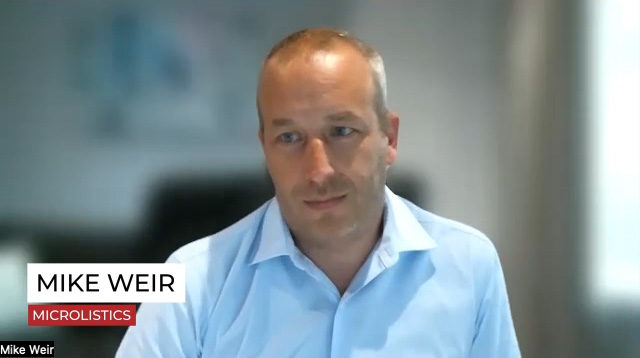
Watch: Strategies for Speeding Up and Increasing ROI in Warehousing
Mike Weir, managing director of Microlistics, explains how warehouses can survive and thrive in a time of constant supply chain disruptions.
Disruption is the “new normal” in supply chains today, and that state of affairs won’t change anytime soon, Weir says. The uncertainties that confront businesses today are especially placing new demands on the warehouse, and “they going to be coming thicker and faster than ever before.”
By their nature, warehouses are good at repetition and speed, but they’re going to have to embrace change. That means investing in new systems and processes in line with unpredictable demand and the way in which product moves to the customer. But there are strategies for channeling those investments in an intelligent and carefully thought-out manner, Weir says.
He recommends “configurability over customization.” The latter often results in expensive systems that take time to deliver and can’t be easily modified in response to current requirements. Weir says warehouses should look for existing “templated” solutions that reduce the time required for implementation. In the process, they can speed up their return on investment, at a time when top executives are growing increasingly impatient about “time to benefit.”
Change should be incremental, with small improvements serving as the basis for additional investments down the line. “Implement your needs for today,” says Weir, “but at the same time, have a vision of your needs for tomorrow.” That way, “you’re not tackling it all at once.”
Warehouses need to “future-proof “ their operations against disruptions, even if the exact nature of those events is impossible to foresee. “The key is having a solid foundation of people, processes and systems, making sure that all are capable, and that you’ve got the mindset in the business of flexibility,” Weir says.
